Caitlin Moran: “I wanted to make a movie where nothing bad happens to a girl”
Best-selling author and columnist Caitlin Moran on adapting How To Build A Girl for the big screen...
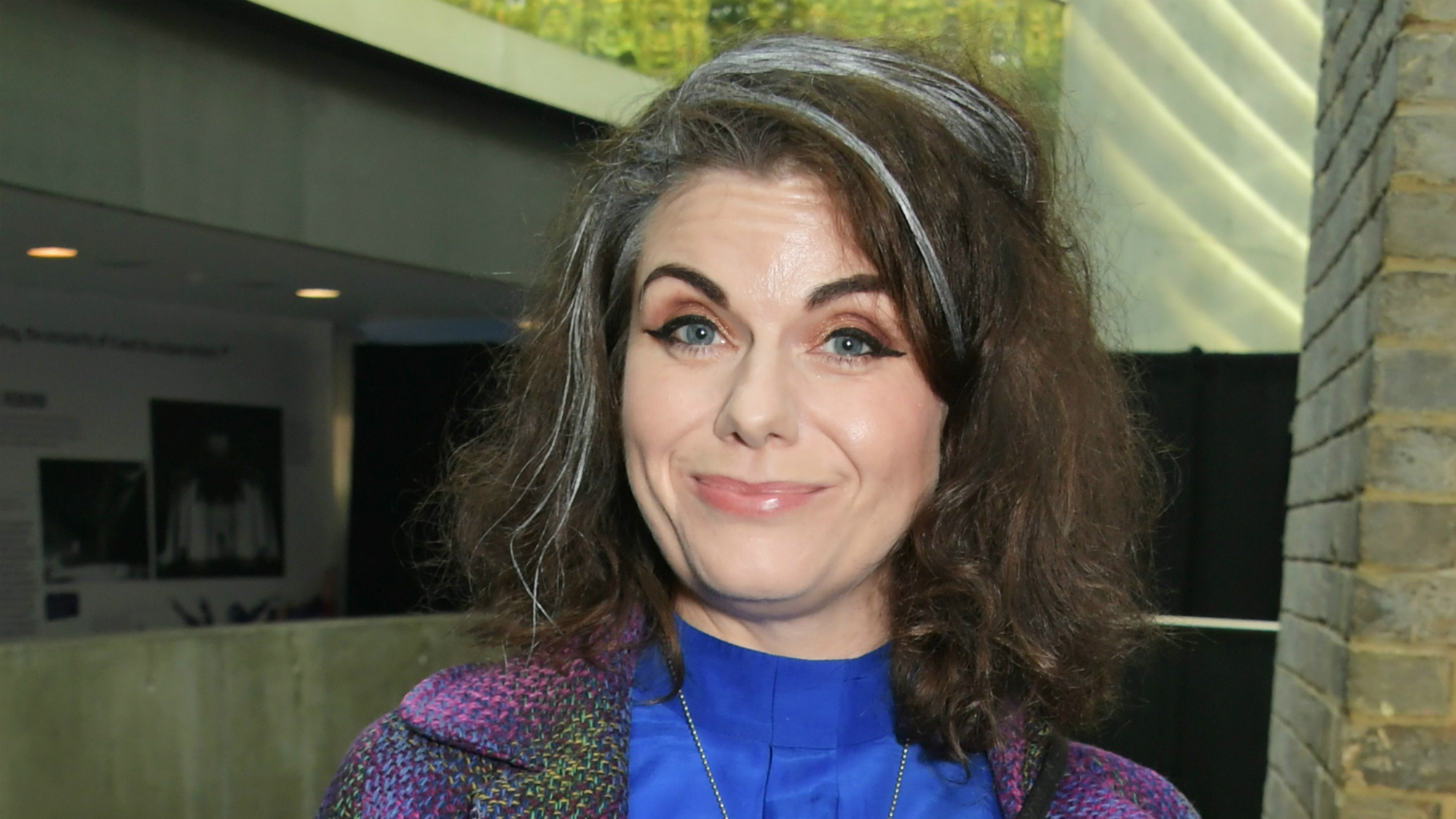
Celebrity news, beauty, fashion advice, and fascinating features, delivered straight to your inbox!
You are now subscribed
Your newsletter sign-up was successful
Best-selling author and columnist Caitlin Moran on adapting How To Build A Girl for the big screen...
We've devoured her books and screengrabbed every one of her musings. And now Caitlin Moran's work is coming to the big screen as her best-selling semi-autobiographical novel, How To Build A Girl sees its film release. Directed by Coky Giedroyc, Beanie Feldstein plays aspiring music journalist Johanna Morrigan from Wolverhampton (based on Moran) and unsurprisingly, Moran's take on the traditional coming-of-age movie offers us more than we bargained for. Forget 'getting the guy' and think honest portrayals of masturbation and periods, and a heroine who (wait for it) doesn't need saving. Serving us a healthy dollop of long-awaited feminism on the big screen, here Caitlin fills us in on the process behind it...
How does it feel seeing your book come to life?
It's really reassuring to see your teenage years happen again, but with Beanie Feldstein playing you instead of you. She's so much better at me than me! And I got to satisfy a sadness from my own teenage years. I wanted to have a top hat so much, but there were never any in the jumble sales in Wolverhampton. So the only thing really that I was very firm about in the film was, “Give her a top hat, she wants one so much”.
The top hat has brilliant staying power!
Well, we see why generally characters in films don't wear top hats - wardrobe had a nightmare with it. She was wearing so many wigs and then she's always moving around. So I think they had to basically nail it onto her head and it was quite unpleasant for Beanie. Sorry, Beanie! Then when she crowd surfs, they had to keep the hat on! I mean we should’ve CGI’d it, really. Turns out it’s far easier to get Spiderman to explode out of a rocket, than it is to keep a hat on a girl at a gig.
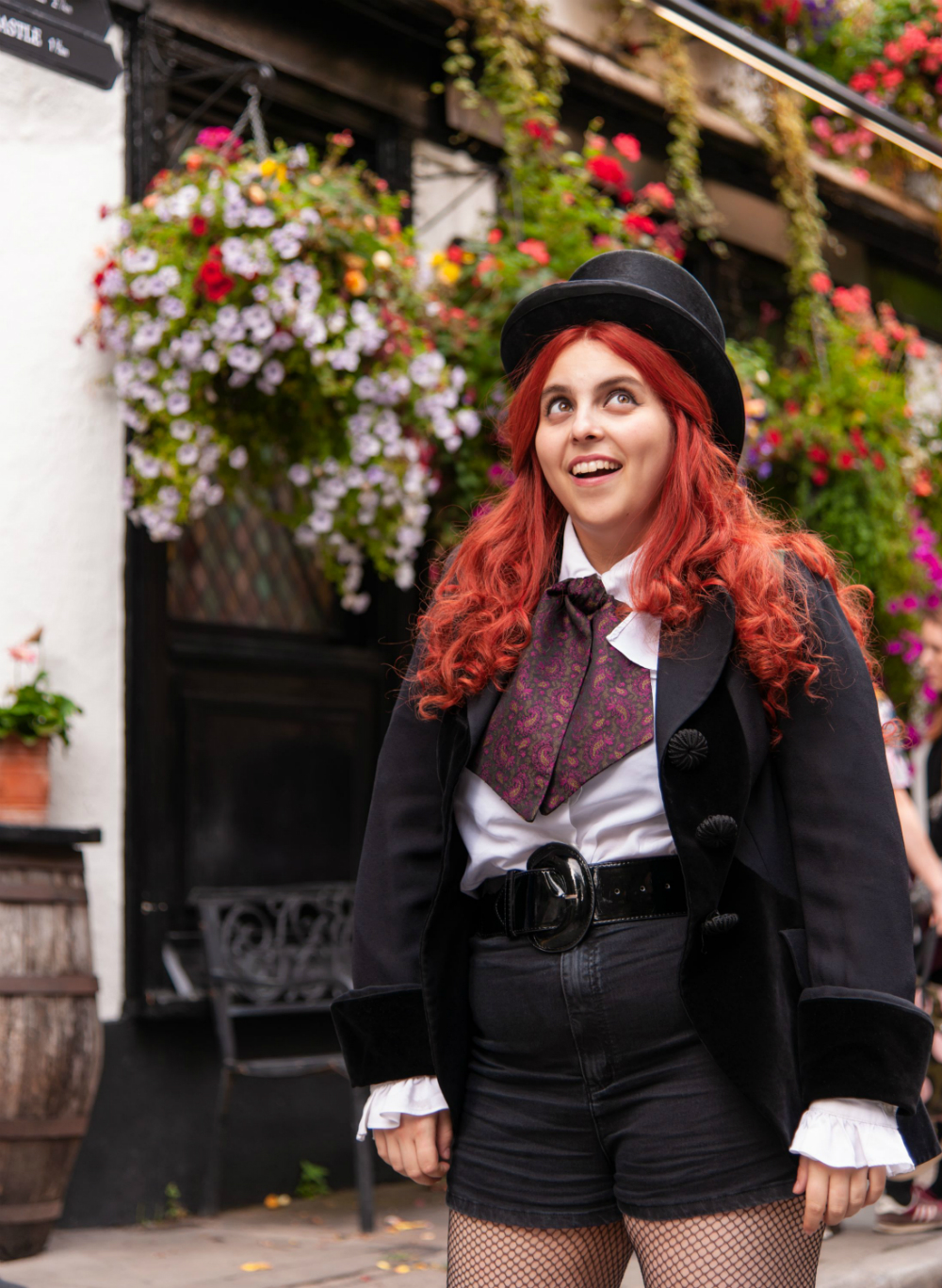
Did you have any concerns about turning your book into a film?
Only whether I could learn how to do it in time because I've never written a script before - I literally didn't know how to do it. In everything else I write, it's me - it’s my voice, I'm talking to you and it's words. But in a film - big news here - it's you watching it as well. So you need to leave space for the actors to do what I believe they call ‘face acting’. Once I realised that, it was a new and amazing thing. I was like, “OK, so we've got face acting. What if I invented a whole wall covered with this girl's 'Gods', and they could come alive and give her advice? And each of those heroes on there was one of my childhood heroes, but they were played by my heroes in the modern day!"
Celebrity news, beauty, fashion advice, and fascinating features, delivered straight to your inbox!
It's a pretty impressive list of faces...
Well I thought, "I'll get Sharon Morgan, Michael Sheen, Jameela Jamil and Lily Allen!” It was like, “Oh my god, if you've got visual and you can get people, let's get the best people, dress them up in the best outfits and just have this brilliant fantasy sequence”. So I'm now addicted to the whole process. That's the planboard for the next movie I'm doing [points to her wall] and I won't stop trying to make movies until they drag me out of the room going, “Nope, Michaela Coel’s going to make all the movies from now on, you don't get a chance”.
Who would be on your wall now, those actors?
[Looks at wall] I’m just seeing what I've got on my wall here. I've got David Bowie wearing the most ridiculous trousers ever. I've got this picture of Paul McCartney, which is my favourite where he's got a baby in his coat and he looks so hot. I can never work out in that picture whether I want him to be my husband or my dad - that's something to work out in therapy later. I've got a picture of me when I was 17 with my husband. And a picture of Wales because that's where hopefully I'll end up living. Those are my heroes now - the country of Wales, Paul McCartney and David Bowie.
The creative team were all female. Was that a conscious decision?
Yes, and thank god. I've read so many nightmare stories about women writers and creators having to work with men who didn't get it. Or being given notes and having your vision compromised. But I had three incredibly strong female producers who protected me from everything. And the only note ever was, “Go further. Just keep doing it, whatever you want to do - we will make sure it happens”. We had a female director [Coky Giedroyc] who just got it in her bones. It’s such a hard slog being a director and she was extraordinary throughout it. And then the cast and crew was the most female and LGBTQ that I believe a British movie has ever had, which was really important to us. So yes, it was just a great big womb fest really. It was fantastic.
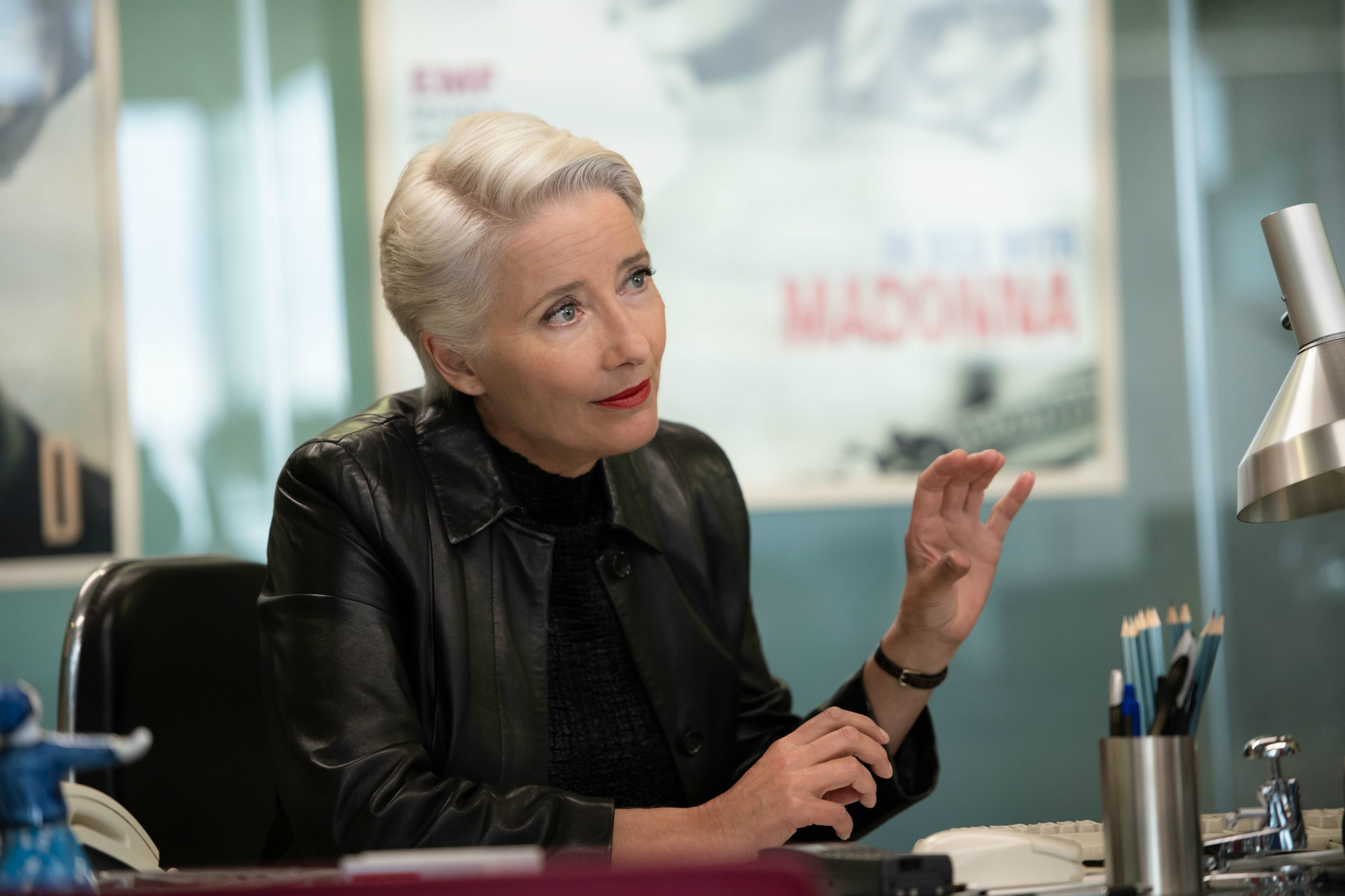
You can tell - it was the first time many of us have seen a used sanitary pad in a film...
That was a very controversial scene. The props people are really on their shit and they wanted to give us choice. So we had a huge trestle table with 10 different sanitary towels on it, all with different kinds of stains. And we had a big debate about which one we should use. I was like, “Well, she wouldn't be doing PE if it was the first day of her period and it was really intense, so it's going to be towards the end when it's a bit sort of rusty and tailing off and stuff”. So in the end we had this big brainstorm that was the biggest conversation we had. Like, “How stained need this pad be in the scene”?
It’s very realistic!
It's really weird as I've got older, I've realised men presume you start menstruating when you're 13, 12, 11. I think they presume women are somehow noble and wise and can deal with it and that's just part of being a woman. But if a boy, when he was 12, was in school and suddenly felt a weird feeling and realised his pants were full of gravy and that this was going to happen every month until he was, 50? He'd be completely freaked out and horrified by it! And we are too, we're not any more noble. We're just dealing with a massive staining situation as best we can. So yeah, I like to get a bit of realism in there.
It’s also refreshing to see a young girl with a sex drive who doesn’t get paired off for her ‘happily ever after’. It's not something we see a lot of, is it?
I had list of things I hadn't seen in coming of age movies where I was like, “If I ever get to make one here's things I want to do.” So number one, it's such a common trope if it's a girl, she'll meet a man who makes her come sexually alive and shows her what sex is. Girls who've gone through puberty know about their sexuality, hopefully! They’ve been masturbating from an early age because it's a brilliant hobby! So they don't need to be told what sex is. I also wanted to show a girl who's already had a sexual awakening, with herself. I wanted her to be working class - you don't see many coming of age movies about the working classes. And I wanted her to be a big girl. And for that not to be an issue. She's happy in herself.
You're right, so often weight becomes a plotline.
Then many movies about teenage girls are about how it's important to have your friends and you'll be fine as long as you’ve got friends. That's fine, if you've got friends! What movies are there for lonely girls? Then finally, it's such an established trope that when the sexy boy - in this case, Alfie Allen as John Kite - turns up, you think they’re going to end up with each other, because you can only really 'come of age' if you've got a boyfriend at the end. I was like, “No, I want to show a movie where the boy turns up and they become friends - that's what he offers her”. And that's a much better present to be given than a boyfriend. So it's a list of things where I was like, “Let’s make a different kind of coming of age movie here”.
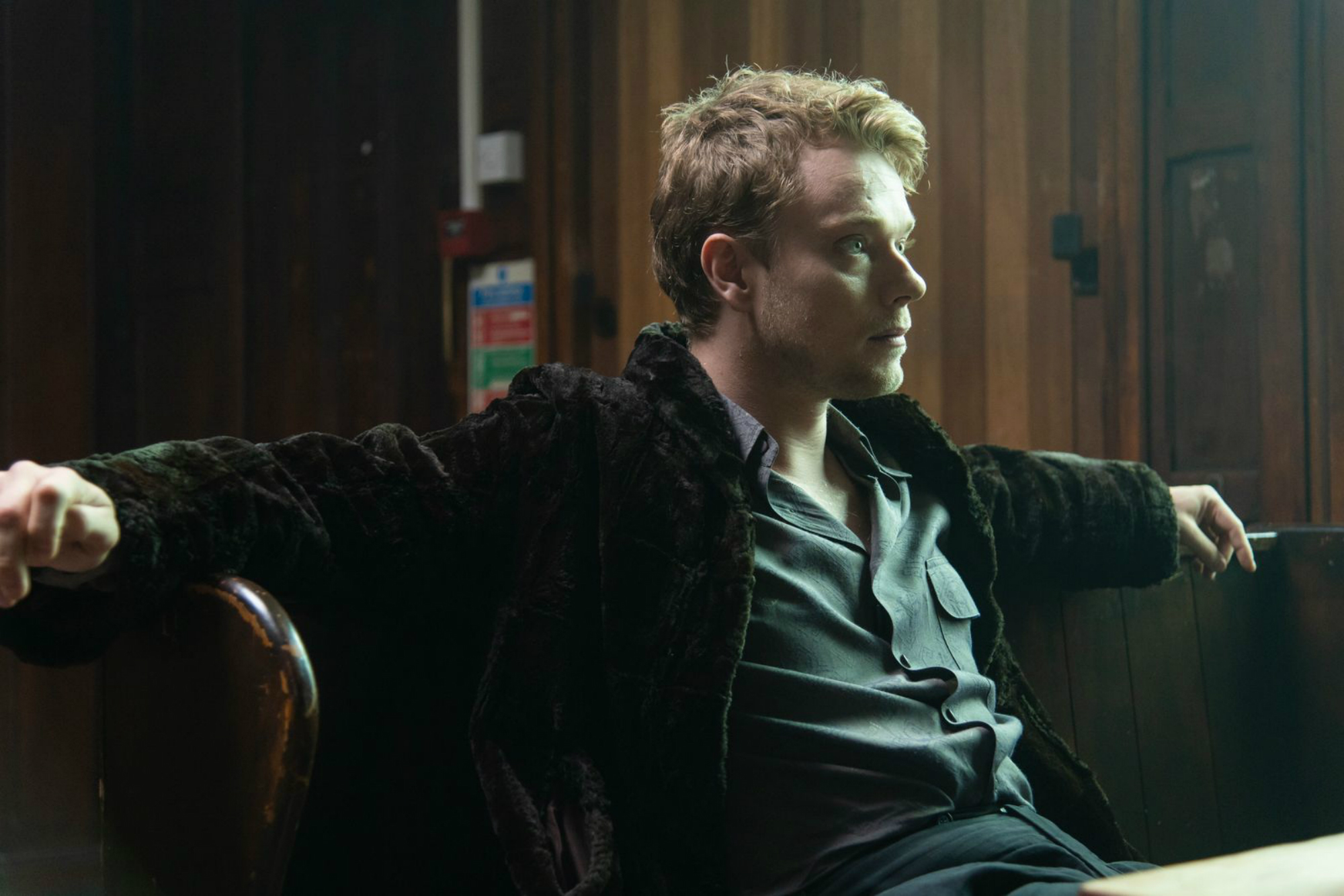
The film is set during the period you grew up. Did you ever consider bringing it up to date?
The main thing I wanted to do is make a parable or archetype for a story I haven't seen before. When I was a 16-year-old media journalist, I was probably the only girl in the country who had a national platform to talk about her opinions. And I started off as a fan, just loving the music. Then it was explained to me that that's not what you're supposed to do - you should be more cynical and attack to bring people down. Then I had a massive revelation around the time a rock star’s mum started sending me letters going, “You've made my son cry”. That wasn't who I was, I didn't want to do that - I just was a fan. So I wanted to go back to being a fan, being happy and positive. And that seems like a very specific nineties story.
Do you think it would be very different now?
Well, in the 21st century, every 16-year-old has a national platform to talk about their opinions - social media. You go through exactly the same process - you start off cheerful like, “Here's a picture of my dog”. Then someone goes, “You look fat” or “The thing you love is problematic”. You become more cynical and start being snarky and attacking others. You have to get to that point where you go, “I don't want to be this person”. If you’re given the gift of being able to communicate with the world, why wouldn't you spend it pointing out things you love? And going “More of this!”. To feel you've got to be constantly defensive when talking is not good for young people's souls. So I wanted to set it in the past so you could tell that story without it being totally on the nose of social media.
That makes sense. Including references to social media or technology would mean it dates quickly, too...
Totally. And otherwise, so much of it is just going to be on the screen - someone looking at a phone and then looking sad. And it’s really hard to show that. Whereas if you know if you can show it in another arena, it's easier to illustrate the story. Also, it's a nice bit of nostalgia! Women of my age are going to want to watch it because we remember being that teenager at that time, but younger generations seemed to be so obsessed with the nineties too. My daughters are obsessed with the nineties - it’s a time where they didn’t have mobile phones and everything's cheap and everything's really positive. So it’s like “OK, let's give you a little bit of that and you can go and have some fun for 90 minutes in the nineties”
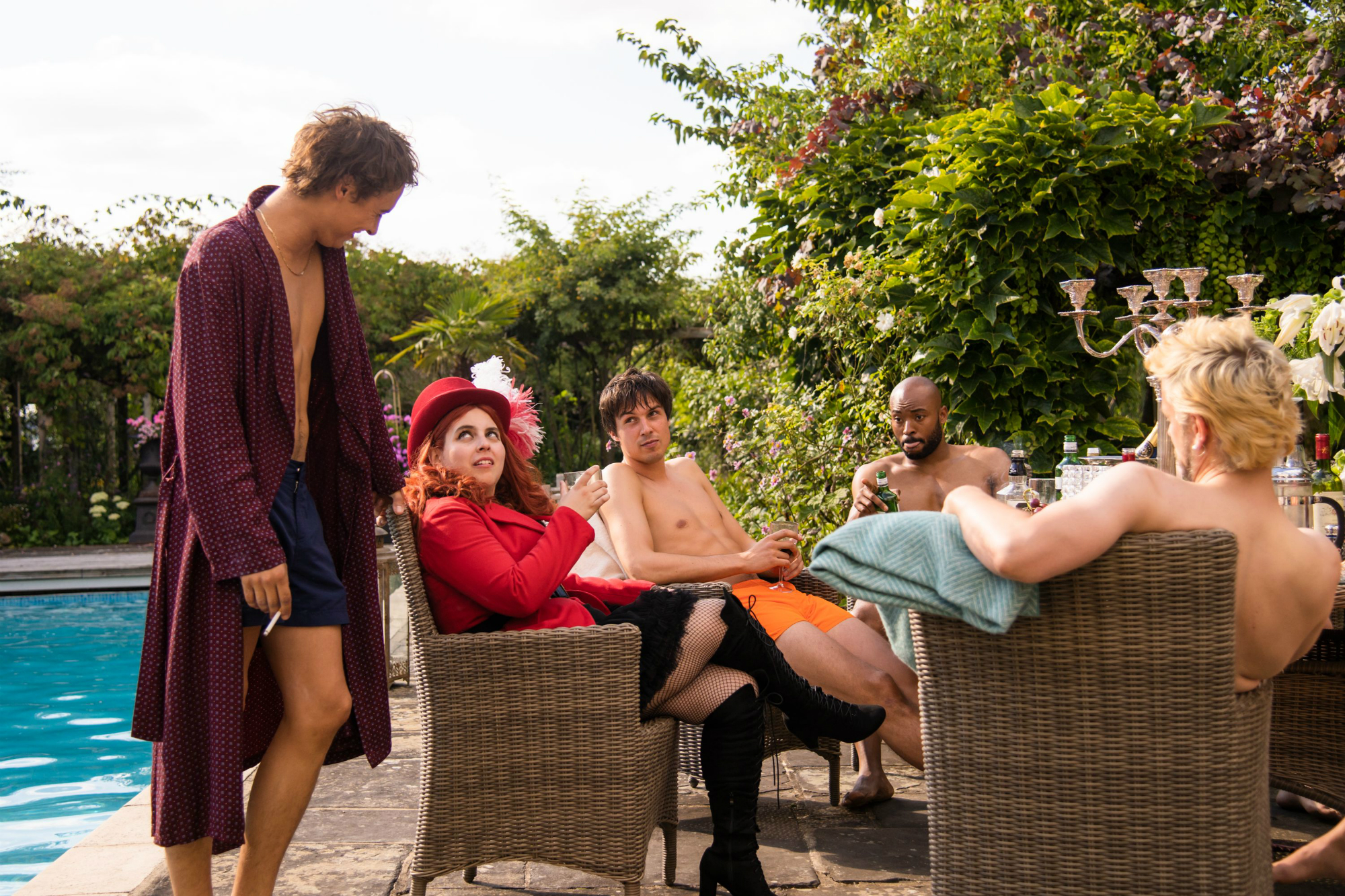
There was definitely something liberating about that time period, wasn't there?
It was a time when people were much freer to go off and do things, and you weren't worrying. But if you're on social media, you might write something that would ruin your life. So many young people I know now - good progressive kids who believe in equality - are so worried that if they say the wrong thing when they're talking about an issue, they’ll be the centre of a Twitter storm and they'll be labeled and be seen as problematic, when they're just trying so hard to be good. It was a more innocent era, I feel.
How do you think you’d fare growing up in today's world?
I'd be fucked because there's a huge class issue. I was the last generation where if you didn't go to university and were good at writing, you could get a job in the music press. And that would lead to a job on monthlies, then nationals and you might go into TV or whatever. That ladder has been pulled up. Now you can blog, but you're not getting paid. So there's a class divide. If you're a working-class kid and have to work a job in the day, you've got less time to develop as a writer than someone whose parents can support them. There's many brilliant things about social media but it's definitely widened the class divide. It's led everybody to be a writer but that means in the end, maybe no-one will be able to because no-one could be paid for it.
It’s worrying to think we could lose so much potential material, isn’t it?
You know, humanity goes through these cycles. I listen to Melvin Bragg's In Our Time all the time and it's really easy to think this is a uniquely terrible time and it is fucking terrible. But humanity always in the end just goes, “OK, what do we want? What do we need? How do we make that happen?”. And I hope we find a way to monetise young creatives because it breaks my heart to think that someone like Michaela Coel might not have anyone follow after her. But if only straight, white middle class guys who've been to Oxford or Cambridge get these jobs in creative industries, we're going to be bored out of our minds.
That's why characters we can identify with - like Beanie's - are so important. How do you feel about Beanie playing Johanna? What do you think that means for young girls growing up?
It's huge, starting with how she looks. Before Beanie came along, there weren't any big girls you saw on screen where the main thing about them wasn’t that they were fat. Rebel Wilson's amazing and brilliant in Pitch Perfect. But she’s called Fat Amy and all the jokes she's making are fat jokes and that's really disruptive and completely ignores the fact that most girls are a size 16. So I wanted to present her as beautiful and happy in who she is because that is who Beanie is. And that scene I wrote for her once we cast her where she's in the bin bag bikini, delivering this lecture to boys twice her age? It's like, yes! Show me the rage and brilliance and righteousness of teenage girls, because it’s incredible and I am their biggest fan.
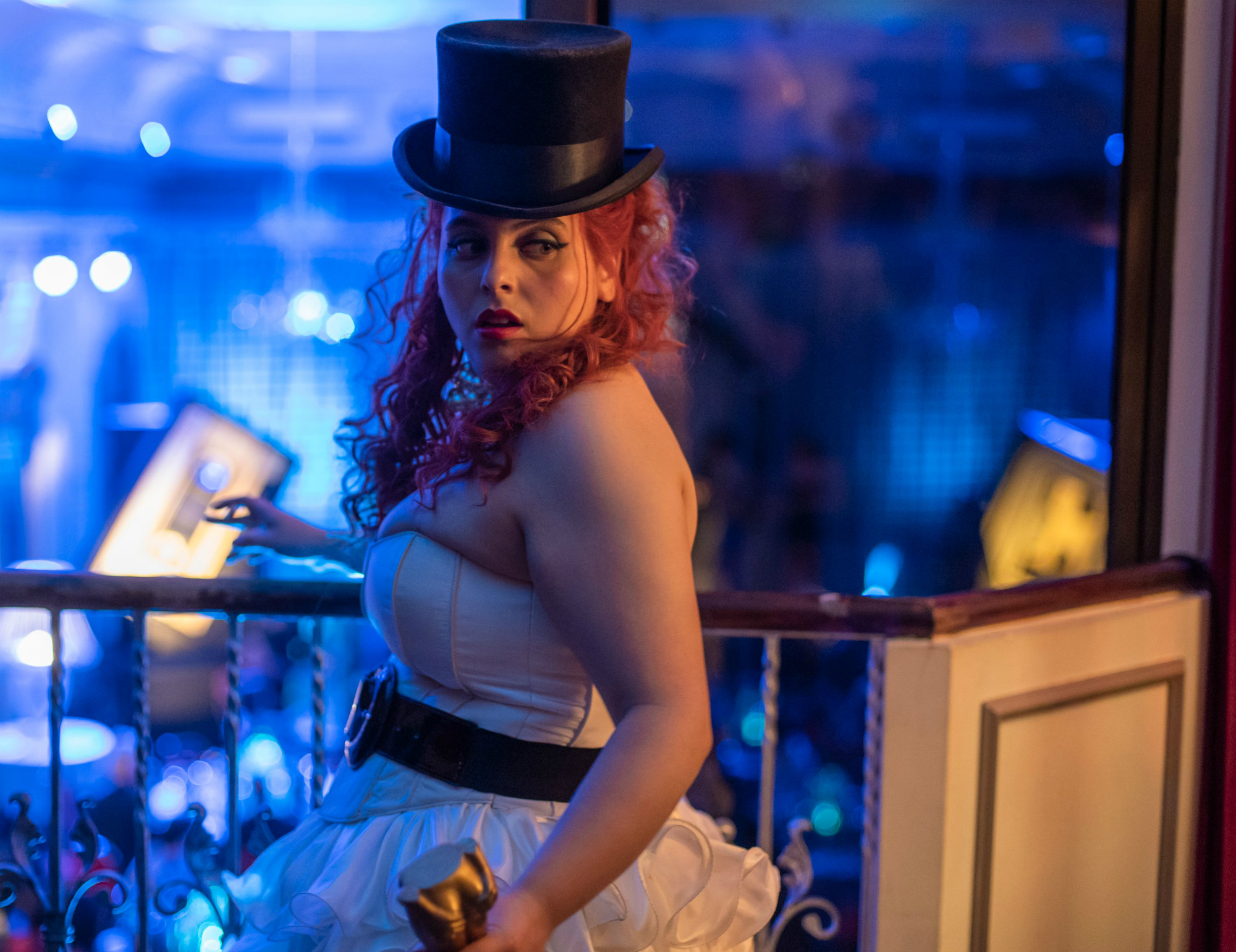
That’s something to be optimistic about...
Yeah well, the next generation are incredible. My generation can't go “All the young people...they’ll sort out climate change, they'll sort out Black Lives Matter, they’ll sort out inequality, they’ll sort out feminism” because they’re kids. It’s brilliant they've got this rage and they want to do this stuff. But if we go “Oh, all the young people will sort it out” then what they're basically hearing is “Mum and dad can’t sort this out”. We've got to sort it out. And that's terrifying. We've got to keep the generations working together. We can't just go “Oh, the young ones will solve it”. That's horrible. They should be experimenting and drinking and putting hats on and being silly.
Were you impressed with Beanie’s accent?
She was so worried that we would go “You can't do the accent” and she pointed out to us British actors find the Midlands accent really hard, it's a very hard accent to do. She put in all the work - she went and lived in Wolverhampton for two weeks and made loads of friends. Apparently she still gets emails now from local restaurants like “There’s a 2-4-1 curry deal on this Thursday”. She's like, “I'm in LA!”. But she just did such a beautiful job. I've been in rooms where she walks in and girls just love her. She's good and has cheerful sunshine in her bones. So to have her play teenage me just makes my teenage years finally seem worthwhile.
Watching her relationship with Alfie play out is lovely, too.
Yeah I love watching her opposite Alfie. People have said when they go to the hotel room, they're used to that being the moment a movie turns sour. Like he's going to do something wrong. And I wanted to make a movie where nothing really bad happens to a girl. She's not tortured. She doesn't end up crying. The world is a benign place! Go out there and find your friends. I'm not going to punish any girl in any of my stories. They get to make their own mistakes and build themselves how they want to be built.
Caitlin Moran's How to Build A Girl is available to watch on Amazon Prime Video now.
Sophie Goddard is the Entertainment Editor of Marie Claire UK, as well as working across other titles in a freelance capacity. She has over 10 years journalism experience working on both digital and print platforms and prior to Marie Claire, worked at Glamour and Cosmopolitan magazine. Sophie writes about a number of topics, specialising in celebrity interviews and features. At Marie Claire, she is responsible for booking and interviewing cover stars and other celebrity interviews and is always open to pitches from publicists (she is always open to discussing sausage dogs, too).